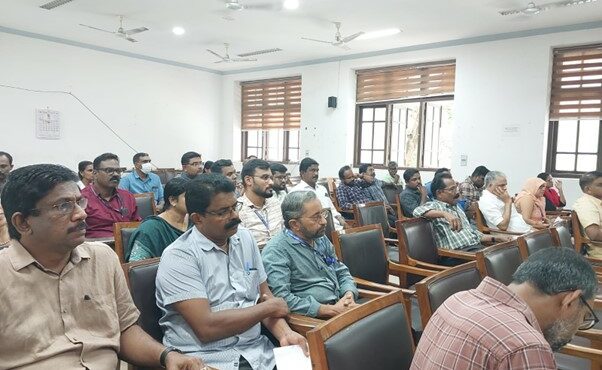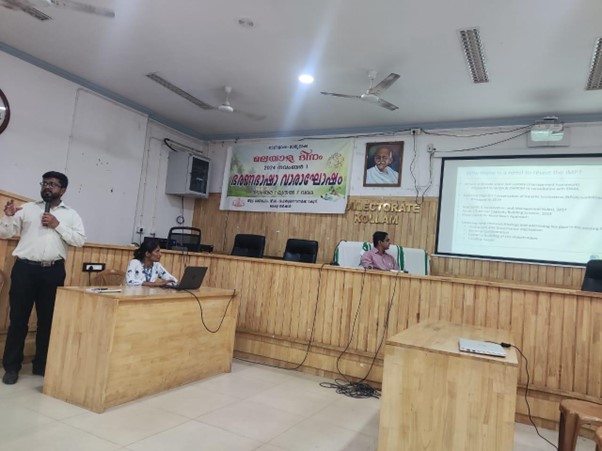
Stakeholder Inception and Consultation Meeting – State Wetland Authority, Kerala in collaboration with Wetlands International South Asia
-
Integrated management planning
-
Wetland values, status and trends
State Wetland Authority, Kerala (SWAK) in collaboration with Wetlands International South Asia (WISA) organized a stakeholder inception and consultation meeting on the 2nd of November 2024 at the Collectorate, Kollamfor the revision of the Integrated Management Plan of Ashtamudi Wetland.

The key objectives of the workshop were to introduce the Integrated Management Plan of the Ashtamudi Wetland to the stakeholders and to define and outline the broad actions required for the revision of the Integrated Management Plan. The meeting was chaired by the Director – DoECC (Directorate of Environment and Climate Change), Mr. Suneel Pammidi, IFS. Representatives from different government departments, panchayats, civil society, and the fisher community participated in this workshop. The session started with a brief presentation on the outline and draft chapters of the revised Integrated Management Plan of Ashtamudi Wetland by Mr Sridhar A, Senior Technical Officer, Wetlands International South Asia followed by the comments and suggestions from the participants.

Some of the relevant points that came up from the participants during the workshop are given below:
Challenges:
- Solid and liquid waste management continues to be a key challenge for the LSGs in terms of wetland management.
- The reduction of freshwater flow and the improper tidal flushing processes due to human constructions and interventions have increased the lake’s salinity, and marine characteristics dominate the lake more than estuarine characteristics.
- This has also increased the number of marine species in the lake ecosystem and affected the livelihood of over 3000 fishers who rely on fishing. But, even the marine species use the estuary for their reproduction and that too is getting affected due to the changes in the lake ecosystem.
- The clam fisheries have also been affected by pollution and improper tidal flushing. Moreover, invasive species such as Charru Mussel (Mytella strigata) are affecting the populations of short-neck clam (Paphia Malabarica). This has also resulted in a reduction in their catch and resulted in non-renewal of the Marine Stewardship Council (MSC) certification attributed to short-neck clam fishery in the year 2014.
- Panchayats lack the power and resources to deal with the problems. SWAK has a lesser number of foot soldiers. There is a need for a single governing unit, which can focus on the improvement of wetland health.

Way forward:
- The creation of the Ashtamudi Wetland Management Unit (AWMU) is the first and foremost step towards bringing change. This should have representatives from all the panchayats around Ashtamudi wetland.
- Collaboration between different LSGs was reiterated to be important for the effective use of resources and efficient action.
- There is no dearth of studies related to the Ashtamudi wetland and there is a need to compile and bring them together. Through the WIAMS project, there is a possibility to bring together these studies and data together.
- Waste management is the key area to be focussed on. Integrated solid and liquid waste management with possible decentralized treatment systems have to be designed and implemented in a participatory way to address the problems.
- Subsequent consultation meetings will be conducted at panchayat and department levels in the coming months.
It was decided that the draft action plan will be updated with the inputs from this stakeholder meeting and will be circulated to all the participants. Once they provide their inputs the action plan will be approved.
